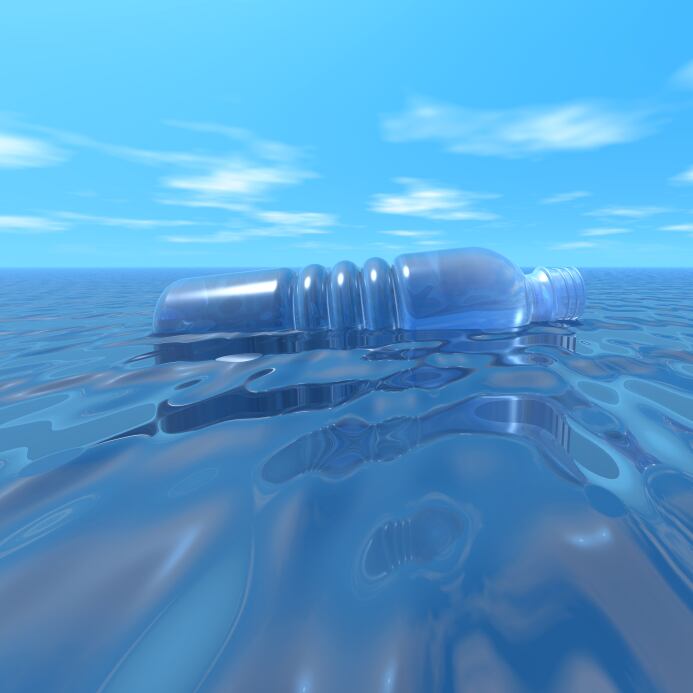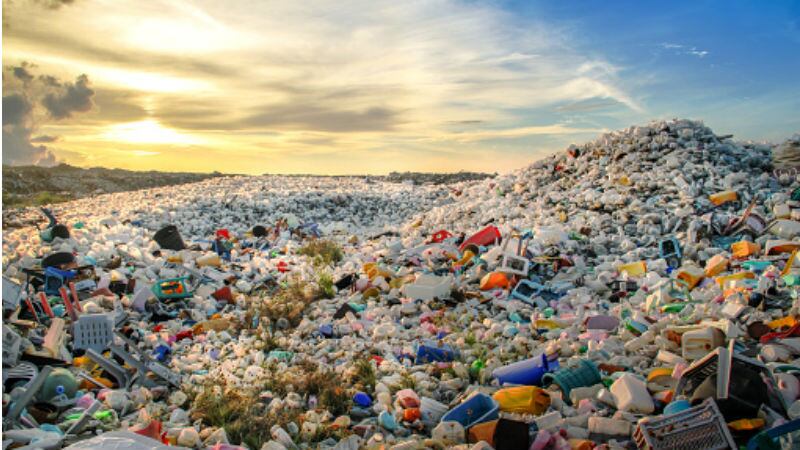The research, produced by the UK-based Circular Economy Task Force, was based on anonymous interviews with leading supermarkets and brands. It revealed that, in the absence of government direction, a disjointed and potentially counterproductive approach to solving plastic pollution is emerging.
The report, Plastic promises: what the grocery sector is really doing about packaging, quotes industry insiders to show that big changes are on the way for how businesses use plastic. However, it also warns that this could have negative consequences, including higher carbon emissions and lower packaging recyclability.
Single use plastic is being replaced by other single use packaging, like paper bags and compostable or wooden cutlery. Businesses admit that these decisions are sometimes being made without fully evaluating the environmental impact of the alternatives. This may include higher carbon emissions, the report authors noted.
“We are aware that [by switching from plastic to other materials] we may, in some cases, be increasing our carbon footprint,” one respondent revealed.
Grocery manufacturers and retailers are sometimes actually opting for alternative packaging materials that are harder to recycle than plastic, Dan Cooke, head of sustainability at recycling specialist Viridor, explained.
“The often kneejerk reactions of some buyers and brands can cause frustration for recycling companies as they move away from inherently recyclable packaging types into materials like coated cardboard and composites that are less recyclable and that can have a worse environmental impact.”
Bioplastics have issues too
Even the adoption of bio-based plastics, which have been widely hailed as a compostable solution to the plastic issue, can be problematic.
Over 80% of consumers think biodegradable plastic is environmentally friendly. But the research demonstrated there is little understanding of what the terms mean and how the material should be dealt with once used.
“Our interviewees wanted a clearer approach to where it should be used and how it should be marked to avoid causing more problems. Confusion, they worried, could potentially harm the environment if people either put ‘compostable’ plastic in with conventional plastic, or litter material, wrongly assuming it will biodegrade in the open environment. Some companies that had tried using this type of plastic also suggested that material did not degrade as expected in real life conditions,” the report said.
For Adam Read, external affairs director at SUEZ recycling and recovery UK, this demonstrates the need for careful evaluation of bio-plastics and other new materials that are hitting the market. “We need to think much more carefully (and quickly) about how materials like compostable plastic are introduced. We must ensure a system where they are used where they make sense and in a way that people will understand to limit contamination and leakage.”
Collaboration or competitive advantage?
Developing solutions to plastics requires system-wide change. However, brands and retailers surveyed said that plastic alternatives are viewed as point of difference for their businesses.
As a result – and despite shared aims and joint commitments from companies in the grocery sector - individual companies are developing their own policies around plastic to gain competitive advantage.
As one respondent noted: “Packaging technology innovations can be quite the competitive advantage in the current climate.”
This could also have negative and unintended environmental consequences.
Government should 'be brave'
The situation has actually resulted in a desire for increased intervention from government across businesses, who expressed a desire for a top-down, coherent approach. One survey participant stated: “If I could have a magic wand, I’d like to see more joined up, top-down government intervention…We would like to see government be braver.”
Certainly, the waste management sector would welcome a greater leadership role from government.
“This report is a reality check – it shows what's happening with plastics on the ground and why we need to keep a level head. Let's follow the science and ensure producers and consumers make sound material choices in line with the progressive resources and waste strategy,” Richard Kirkman, Veolia UK’s chief technology and innovation officer, urged.
“There’s still an obvious need for improved collaboration and better policy to enable investment in technology and infrastructure that will sustainably raise recycling rates for post-consumer materials,” Viridor’s Cooke added.
Circular economy at risk?
Without an aligned and unified approach to plastics, the divergent and sometimes counter-productive responses of individuals could result in additional environmental burdens, warned think tank Green Alliance.
“The public are right to be outraged about plastic pollution. But what we don’t want is, a few years down the line, for them to be outraged about new environmental problems caused by the alternatives. We need to address the root of the problem, our throwaway society,” Libby Peake, senior policy adviser on resources, warned.
Circular economy models, whereby resources are fed back into the production cycle rather than thrown away, are widely seen as key to this. But for this system-wide response to be effectively developed, a big-picture view of plastics and consensus on how to combat the problem needs to be developed.
“If we aren’t careful, short-term decisions could cause longer term problems for establishing a true circular economy. As the war on plastics continues to rage, avoiding unintended consequences should be at the forefront of everyone’s minds, and that includes government, industry and, of course, consumers. Change must be managed and planned if we’re to move towards fully closed-loop systems for recycling and, more importantly, reuse,” Read concluded.


